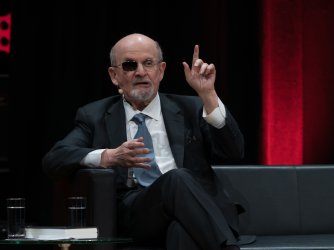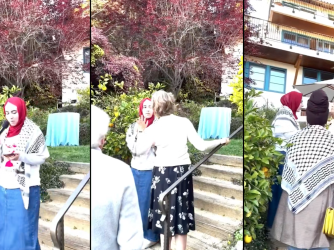Table of Contents
Will the University of Minnesota Board of Regents Need to Intervene to Protect Freedom of Conscience?
Yesterday, FIRE reported that the University of Minnesota, in the face of widespread national outrage in the media, is defending the indefensible: a set of plans to impose an ideological litmus test on future teachers. The desire to teach "cultural competence" or to expose students to any set of values and beliefs is not itself a matter of individual rights—indeed, FIRE would defend professors against any effort to ban specific views from the classroom—but these plans cross the line by declaring that students without the approved values, attitudes, and beliefs are not "competent" enough to become teachers.
This morning, the university's Academic Freedom and Tenure Committee met to discuss the case for the second time. The first of these meetings, on December 4, included discussion of FIRE and our letter to President Bruininks, as well as some misinformation. For instance:
These are notes by faculty members, Vice Provost [Arlene] Carney said; academic freedom includes faculty members composing notes without harassment. They were not intended to be released and they are not recommendations. [...] This was password-protected, Dr. Carney pointed out; someone released the information from the website.
Well, I see nothing in the minutes that comes close to "harassment." Do the professors just want to avoid harsh criticism, or podcasts that include "offensive comments about faculty"? Calling something "harassment" when it's not probably makes people less likely to believe reports of true harassment.
Besides, the "Final Report" of the Race, Culture, Class, and Gender Task Group is indeed a report and not a "draft" (a word that was added to the report months after it was submitted—for proof, take a look at the report as it originally was posted, as submitted on July 16) or "notes." It self-consciously starts with quotations to attune the reader ("We begin with quotations that voice the expressions of others in order to emphasize the real experiences of how cultural diversity lives and breathes..."), and it is well-formatted and well-organized.
Furthermore, there is no sense in which the final report can be said to be anything less than a set of "recommendations," given specific recommendations for "outcomes," "assessment" of those outcomes, and "teacher prep" experiences for the proposed new curriculum.
Finally, the whole set of documents was not password protected or intended to be kept hidden. The documents have long been available on the Internet for the world to see—and, with some after-the-fact alterations, the documents and blog entries are still there. (We have collected screen shots and PDFs of the website as of a few weeks ago, so perhaps the college should think twice about its inclination to rewrite history.)
Today's meeting of the Academic Freedom and Tenure Committee was to include discussion with university counsel about the case. FIRE will direct Torch readers to the public minutes when they become available.
Meanwhile, the American Council of Trustees and Alumni has written to the university's Board of Regents and included a copy of FIRE's letter. If the university administration is not willing to repudiate and scrap the parts of the plan that would violate individual rights if implemented, then I hope the Regents will.
Recent Articles
FIRE’s award-winning Newsdesk covers the free speech news you need to stay informed.

Salman Rushdie calls out left-wing censorship in CBS interview

Western Washington University punishes racing team for sending a photo of a penis drawing on a pizza box

No, the Berkeley Law student didn’t have a First Amendment right to interrupt the dean’s backyard party
